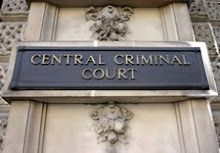THE TIMES
16th NOV , 1982
Twelve good men, or are they?
By Lord Harris of Greenwich
A few months ago an armed robbery trial at the Old Bailey was delayed because of the absence of a juror. Eventually he telephoned, saying he was in custody facing charges of criminal damage and drunkenness. He added, as an afterthought, that he already had eight convictions of forgery, criminal deception, carrying an offensive weapon, possessing dangerous drugs and actual bodily harm. But as he had not been to prison, apart from a period of army detention more than 10 years previously, he was qualified for jury service.
Similarly, in the cases of six people tried at the Old Bailey in 1980, all were eligible for jury service before they stood trial. Between them they had 69 convictions from shoplifting to actual bodily harm and possession of a sawn-off shotgun to handling stolen goods.
The explanation for this extraordinary situation is that the law disqualifies only those who have been sentenced to three months' imprisonment or more. This provision no doubt appeared perfectly sensible 15 years ago but since then there has been a radical change in sentencing policy.
Many who would previously have gone to prison now receive non-custodial penalties such as suspended terms of imprisonment (introduced in 1967), community service (brought in as an alternative to imprisonment in 1972) and heavy fines. I do not believe that it is acceptable that people with long criminal records should serve on juries. Having been arrested and convicted, often in contested cases, how can they possibly be expected not to be prejudiced against police evidence?
But the need for an amendment of the law is pressing for another reason. In the last year there has been evidence of the rapid growth of jury nobbling. Thirteen trials at the Old Bailey were aborted after jurors had been approached. But if there was firm evidence of nobbling in these cases, in how many others did it go undetected?
The scale of the growth of jury nobbling, which tends to be confined to cases where large sums of money are involved and where high quality criminals are in the dock, is causing concern.
Approaches can be made to jurors with spotless reputations but those known to have previous convictions are a far more tempting target to the jury nobbler. In some cases they are well known in the local criminal community and are considered far less likely to report an approach to the police.
Something has to be done; which is why a number of us have been pressing Mr.Whitelaw, the Home Secretary, to take action to end this abuse. He is anxious to tighten the law as soon as possible, but because there is no indication that the Government is prepared to introduce its own legislation this session, Lord Wigoder has introduced a Juries (Amendment) Bill which will be debated on second reading in the House of Lords on Wednesday. This would disqualify from jury service anyone convicted on two or more occasions of an offence triable in the crown court.
I have no doubt that our opponents will say this is a dastardly attack on the jury system, just as Roy Jenkins was fiercely attacked when he introduced majority verdicts in the Criminal Justice Act, 1967.
There was then clear evidence that sophisticated criminals were using the existing unanimity rule to pressure individ- ual jurors to decline to agree to a guilty verdict. The National Council of Civil Liberties said the proposal to introduce 10-2 majority verdicts was a "breach (of) basic principle of English justice", and it was denounced by a number of newspapers. It was passed in the House of Commons on a free vote, with Lord Hailsham lending vigorous support. The change was made, and since then there has hardly been a murmur of disquiet about majority verdicts.
The fact that the case against change was grossly overstated last time will, I suspect, not discourage our critics on this occasion. We will be told that we are exaggerating the extent of the problem, and that, as one MP has already said, if there is indeed a genuine difficulty it should be left to the police to bring the jury nobblers to justice.
This ignores the central problem that individual approaches to jurors are extremely difficult to detect unless they are reported (which, clearly, in many cases they are not).
The Lord Chancellor, the Home Secretary and the Attorney General have all expressed their concern about the situation. I believe that even without the present serious outbreak of jury nobbling that it would be right to disqualify from jury service those with significant criminal records.
The author was Minister of State at the Home Office, 1974-79

No comments:
Post a Comment